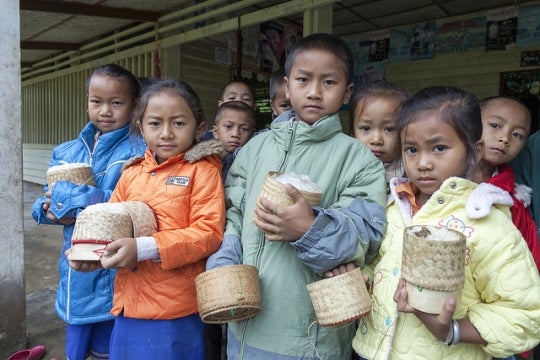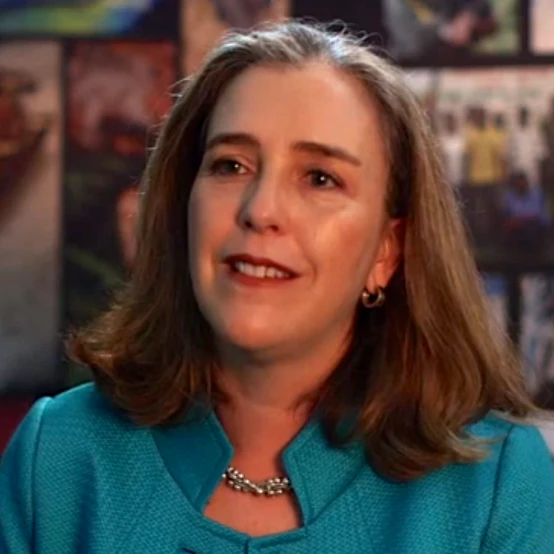 As we mark World Food Day, here’s a sobering thought: Too many people are hungry.
As we mark World Food Day, here’s a sobering thought: Too many people are hungry.
One in nine people suffer from chronic hunger, more than 1 billion people are undernourished, and 3.1 million children die every year due to hunger and malnutrition. This is a huge drain on development--when people are hungry and malnourished, they are less able to improve their livelihoods; adequately care for their families; live full and healthy lives and lift themselves out of poverty.
The problem is set to intensify in the future, as the population grows, climate change affects how we produce our food and the natural resources that help feed the world are stretched even further. We aren’t feeding the world as well as we should be in 2014. How can we do better in the future, when the world will need to feed and nourish 9 billion people in 2050?
Last week, we invited government, private sector, academic and civil society leaders to help us answer that question at a panel on Food for the Future. Although they approached the question from different angles, their answers converged on the need to rethink food systems so that they are more sustainable, and the need for integrated solutions that cut across sectors. At the World Bank Group, we agree that we need all hands on deck, working together, to tackle the food insecurity challenge. It’s not just a matter of sustainable resource management or more efficient storage and transport, or even producing more food. It encompasses all of the above--and more. Feeding the world is too big a task—and opportunity--for anyone to go it alone.
So what steps is the Bank taking to end hunger now and in the future?
We’ve strengthened our commitment to Climate-Smart Agriculture, which is one potentially powerful approach to feeding the world. It aims to produce more food on less land, improve resilience even as climate change threatens to cut crop yields by more than 25 percent, and minimize environmental footprint by reducing emissions and potentially capturing carbon. This is important, because agriculture is both vulnerable to climate change, as well as a major part of the problem. Research finds that agriculture, together with the deforestation associated with land conversion, accounts for about 30 percent of greenhouse gas emissions.
We’re also helping countries improve how they manage the natural assets on which food production depends by supporting the restoration of degraded land and the sustainable management of forests, watersheds and fisheries. World Bank experience has shown that both communities and governments benefit from productive landscape and seascape approaches that improve ecosystem services (such as water supply, erosion control, pollination and soil quality), build climate resilience and increase yields and incomes for the long term. Proper management that is based on science, incentives and enforceable rules is especially important for fisheries, both marine and freshwater, which provide the main source of animal protein for up to 1 billion people.
In an effort to support nutritious food-systems, we’re working to scale up our support for nutrition-sensitive investments in other sectors beyond health, such as agriculture, education, social protection, and water and sanitation. In fact, because agriculture can positively affect the production and consumption of nutritious foods, we’re reviewing every project in the agriculture pipeline to ramp up activities that improve nutrition outcomes.
The Bank is also working to curb food waste. Our research finds that 1/3 of all food produced is wasted-- mainly during production, storage and transport. The Bank is working with countries to implement modern food storage and distribution systems, as well as improve the agro-supply chains that bring food from farm to fork.
Despite the magnitude of the food security challenge, last week’s panel was marked by optimism, energy and a commitment to finding solutions. We share that can-do outlook. To help feed the world, we must implement holistic, innovative and integrated approaches. Ending hunger is key to ending poverty, and we’re more committed than ever to getting enough nutritious food onto the plates of the world’s poorest people.
This blog is part of a series exploring what different sectors can do to feed the world in the face of climate change. If you want to learn more, watch Food for the Future, a high-level panel discussion that happened last October 10, during the World Bank Annual Meetings.



Join the Conversation